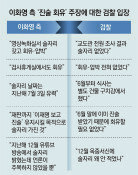Goldman's dilemma
Goldman's dilemma
Posted December. 08, 2017 09:07,
Updated December. 08, 2017 09:40
Asterix, the titular hero of the French comic book series Asterix, drinks a magic potion that gives him strength to fight off the Roman soldiers. Vikings have been known to consume medicine made of fly mushrooms that got them worked up when they fought enemies. In World War II, German soldiers were given Scho-Ka-Kola, a caffeine driven confectionary made from a mixture of coffee and chocolate, to raise alertness before going to the battlefields. In other words, they were “doped” (using enhancing drugs to increase physical performance or level of concentration).
As “physical wars” disappeared, doping has become prevalent in the world of sports. In fact, doping has a long history dating back to the ancient Olympics in Athens. Olympic athletes in ancient Greece ate sheep testicles before competition. Since animal testicles contain steroid, a muscle enhancing element, the treatment is not groundless. Ancient Greek athletes drank herbal tea, which could have contained stimulants, before chariot races.
Doping is a fatal temptation to athletes. In his book “Death in the Locker Room (1984),” American doctor Bob Goldman introduced “Goldman's dilemma.” When athletes were asked if they would take a drug that would guarantee them overwhelming success in sport, but cause them to die after five years, approximately half responded that they would take the drug. Russia is an example of failing to resist the temptation, and its Olympic team has been barred from the 2018 Winter Games in Pyeongchang.
Russia’s doping scandal might have casted a damp over the PyeongChang Olympics. But it looks like the worst is averted, as Russian President Vladimir Putin stated that athletes who have passed the doping test will be able to participate as neutral athletes. Though it is up to the individuals whether they will compete, there is a high chance that Russian star athletes such as Evgenia Medvedeva, who is known as the next Kim Yu-na, will compete in the upcoming Olympic Games. Viktor Ahn (Ahn Hyun-soo), Korean-born Russian short-track speed skater, can also participate in the games. Ahn has been determined to participate in the games, saying, “I cannot miss the PyeongChang Olympics, which I have been preparing for the past four years.”







